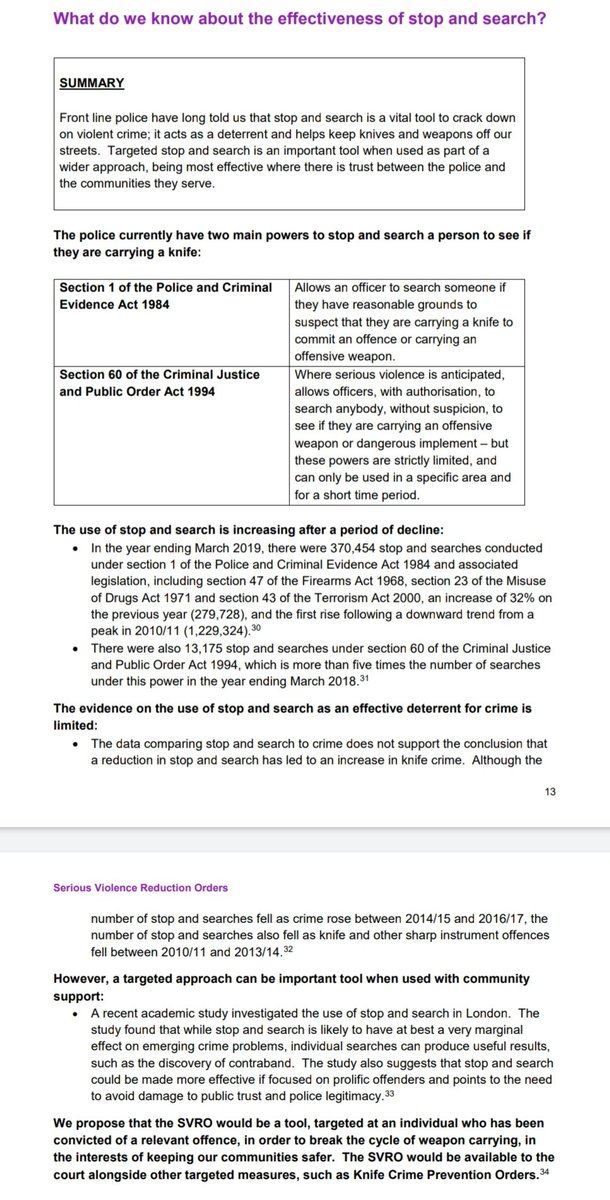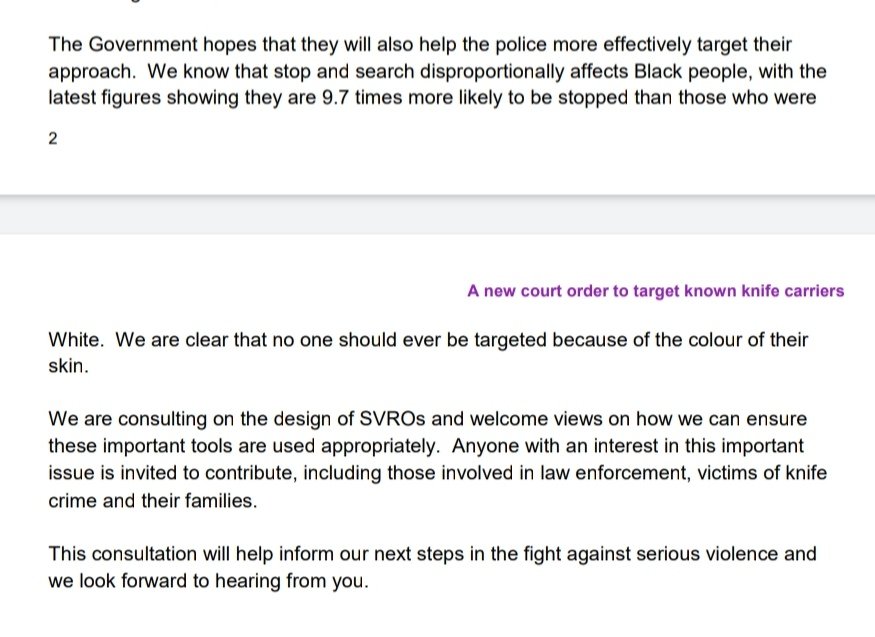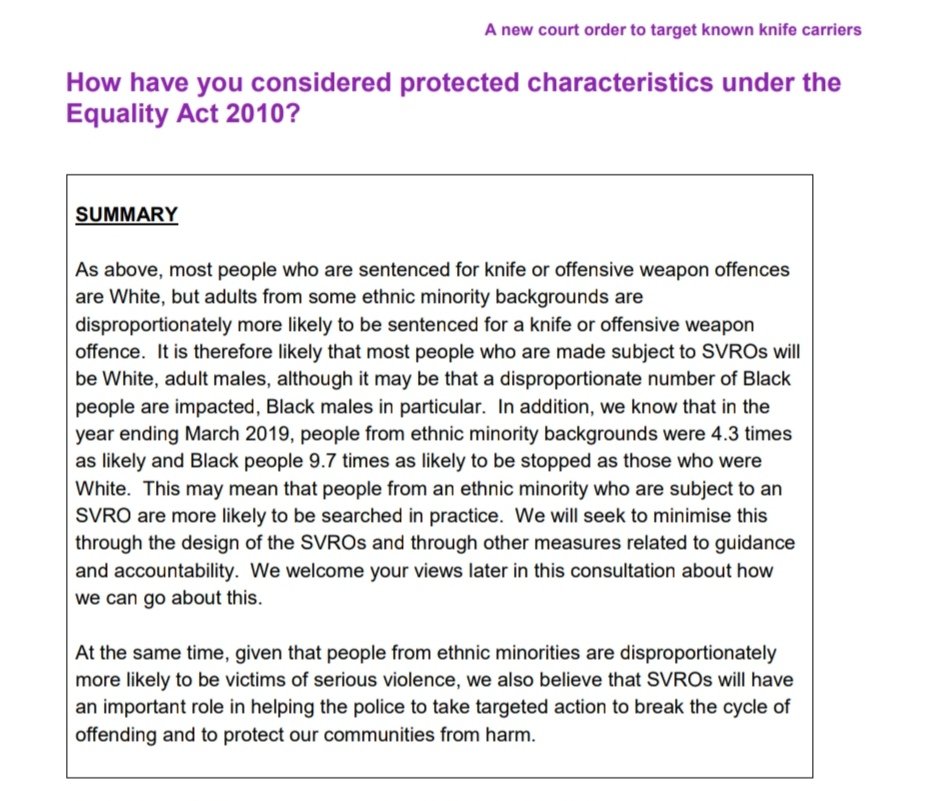Skimming the consultation doc for the proposed Serious Violence Reduction Orders #SVROs, which major on new #stopsearch powers. It& #39;s notable the section on the effectiveness of S&S says (correctly) evidence is limited.
1/
https://assets.publishing.service.gov.uk/government/uploads/system/uploads/attachment_data/file/917277/SVRO_consultation.pdf">https://assets.publishing.service.gov.uk/governmen...
1/
https://assets.publishing.service.gov.uk/government/uploads/system/uploads/attachment_data/file/917277/SVRO_consultation.pdf">https://assets.publishing.service.gov.uk/governmen...
One reflection: the consultation suggests that #SVROs would result in more targeted #stopsearch - but these are additional powers. Why would the use of eg s1, s23 & s60 powers become more targeted?
2/
2/
On which, given that police forces are already targeting what they call & #39;habitual knife carriers& #39;, how much difference would these extra powers really make? Policing is already quite adept at eg turning a stop & chat into a #stopsearch by establishing grounds for the latter.
3/
3/
Another reflection: on a 1st reading, my instinct is the notion that (surely inevitable) further disproportionality can be & #39;minimised through the design of the #SVROs and other measures& #39; is fanciful. More likely SVROs will accelerate disprop, esp at the most punitive end.
4/
4/
That must surely relate to risks around police legitimacy and co-operation, esp in Black communities, and esp in London where these powers will inevitably end up being used most (both #knifecrime and #stopsearch rates are far higher than elsewhere). https://twitter.com/gmhales/status/1282663229198565376?s=19
5/">https://twitter.com/gmhales/s...
5/">https://twitter.com/gmhales/s...
I also wonder about the behaviours of those who will be subject to these #SVROs - who will almost certainly be at heightened risk of victimisation as well as offending. Will their offending reduce, or will they simply be more likely to end up in prison?
6/
6/
We know those involved in violence already eg stash knives in accessible locations and use others to carry knives for them. While anything that reduces accessibility is a good thing it has to be sufficient to reduce the likelihood of offending to work.
7/
7/
My guess is any effect will be stronger for spontaneous than planned violence - which gets me wondering how much eg #knifecrime with injury (and especially homicide) is the former rather than the latter?
8/
8/
Another reflection: with a nod to labelling theory, is there a risk of actually amplifying their offending, especially if their vulnerability to violence is largely unaddressed?
(Related: do there need to be much bigger carrots as well as these additional sticks?)
9/
(Related: do there need to be much bigger carrots as well as these additional sticks?)
9/
Incidentally, at least in London #knifecrime with injury has already fallen considerably - and the fall started before the #stopsearch increase, although the latter could well have contributed.
https://twitter.com/gmhales/status/1237334626579947522?s=19
10/">https://twitter.com/gmhales/s...
https://twitter.com/gmhales/status/1237334626579947522?s=19
10/">https://twitter.com/gmhales/s...
A final reflection: the consultation notes government & #39;worry& #39; about & #39;the rise in repeat offending& #39;. I can& #39;t help wondering to what extent that is a function of increased #stopsearch and therefore shifting government policy, as much as any change to underlying behaviours.
11/
11/
It is notable the increase in #stopsearch, especially in London, is not a function of changing laws but of changing guidance and scrutiny (and resources), reflecting political messaging, background crime trends and the apparently cyclical focus on legitimacy/trust.
12/12
12/12

 Read on Twitter
Read on Twitter




